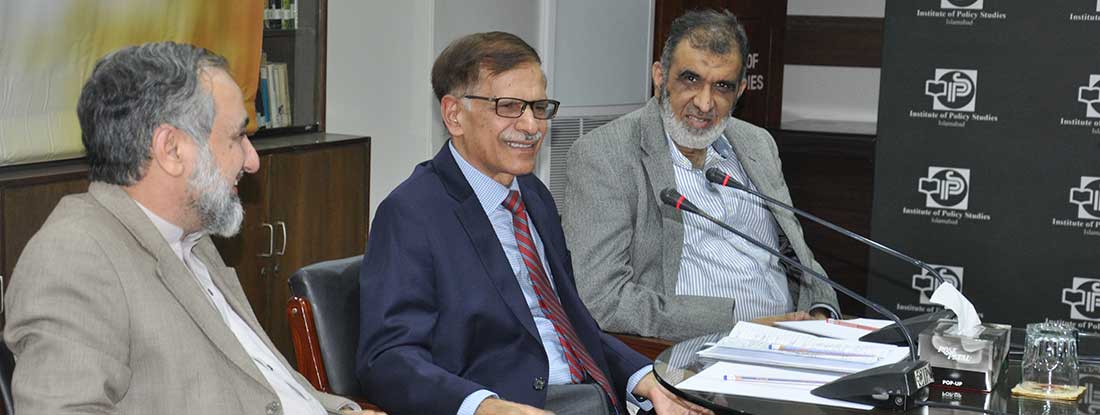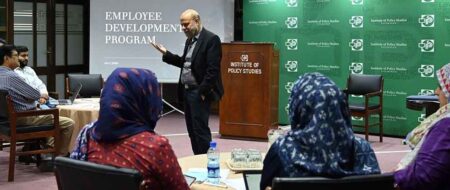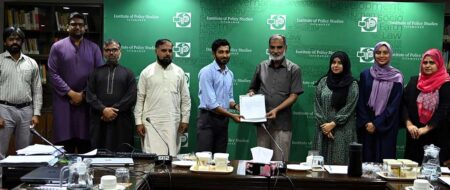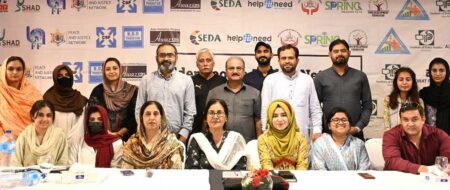The Living Scripts | Abdul Rauf Chaudhry (Former Cabinet Secretary)
The twenty-seventh session of IPS’ oral history series ‘The Living Scripts’ was held with Abdul Rauf Chaudhry, former cabinet secretary, on November 10, 2021.
Opening up about his life, Chaudhry enlightened the audience that his family had migrated to Sahiwal district from Jalandhar, India after the independence of 1947.
Talking about his education, the speaker apprised that he started his initial schooling from Multan and later moved to his village in Sahiwal, where he went on to receive the ‘Presidential Medal for Outstanding Student’ (later renamed as Aizaz-e-Fazeelat) during his high school in 1967.
Talking about his higher education, the speaker said that he graduated from the Government College Lahore and then completed MA economics from the University of the Punjab. He informed the audience that he had also completed several different courses from prestigious universities worldwide, including Cambridge University, UK.
Shedding light on his professional career, the former cabinet secretary said that he appeared in the Central Superior Services (CSS) examination in 1974 and was selected in the District Management Group (DMG), following which he was appointed in the Punjab Province. He then served as Assistant Commissioner in Rajanpur and Layyah, Deputy Commissioner Bahawalpur, Economic Advisor, Industries Department, Additional Secretary in Planning & Development and Finance Departments, and Commissioner Rawalpindi and Lahore Districts.
On joining the Federal Government in 1991, he served as Additional Secretary/Joint Secretary in the Prime Minister Secretariat, Interior Division, and Chairman, Capital Development Authority (CDA). He then retired as Secretary Establishment Division in July 2011. Later he also served as member, Punjab Public Service Commission and as Federal Tax Ombudsman.
Chaudhry apprised the audience that he had the privilege to work with distinction with four Prime Ministers, which were Mian Nawaz Sharif, Moeen Qureshi, Mir Zaffarullah Khan Jamali and Shaukat Aziz.
He also shared some inside stories which occurred during these tenures and enlightened the audience about the complexities of policymaking and power corridors.
He said that during his career, at times he was asked by his seniors as well as other higher authorities to compromise on merit, which he completely refused and never negotiated on meritocracy.
The speaker said that he believes nepotism is ruining our institutions and urged people to abandon such practices in the best interest of the country.












